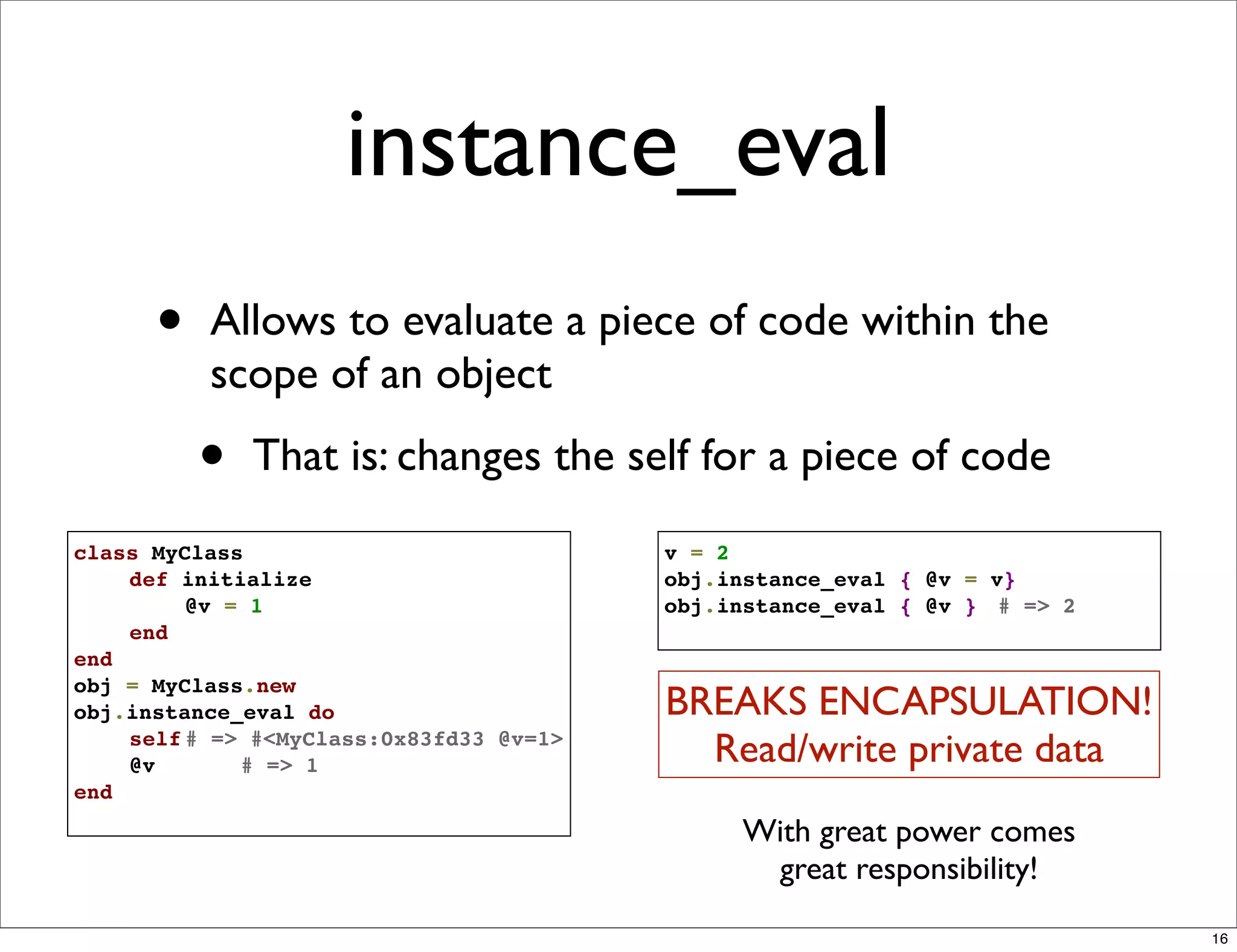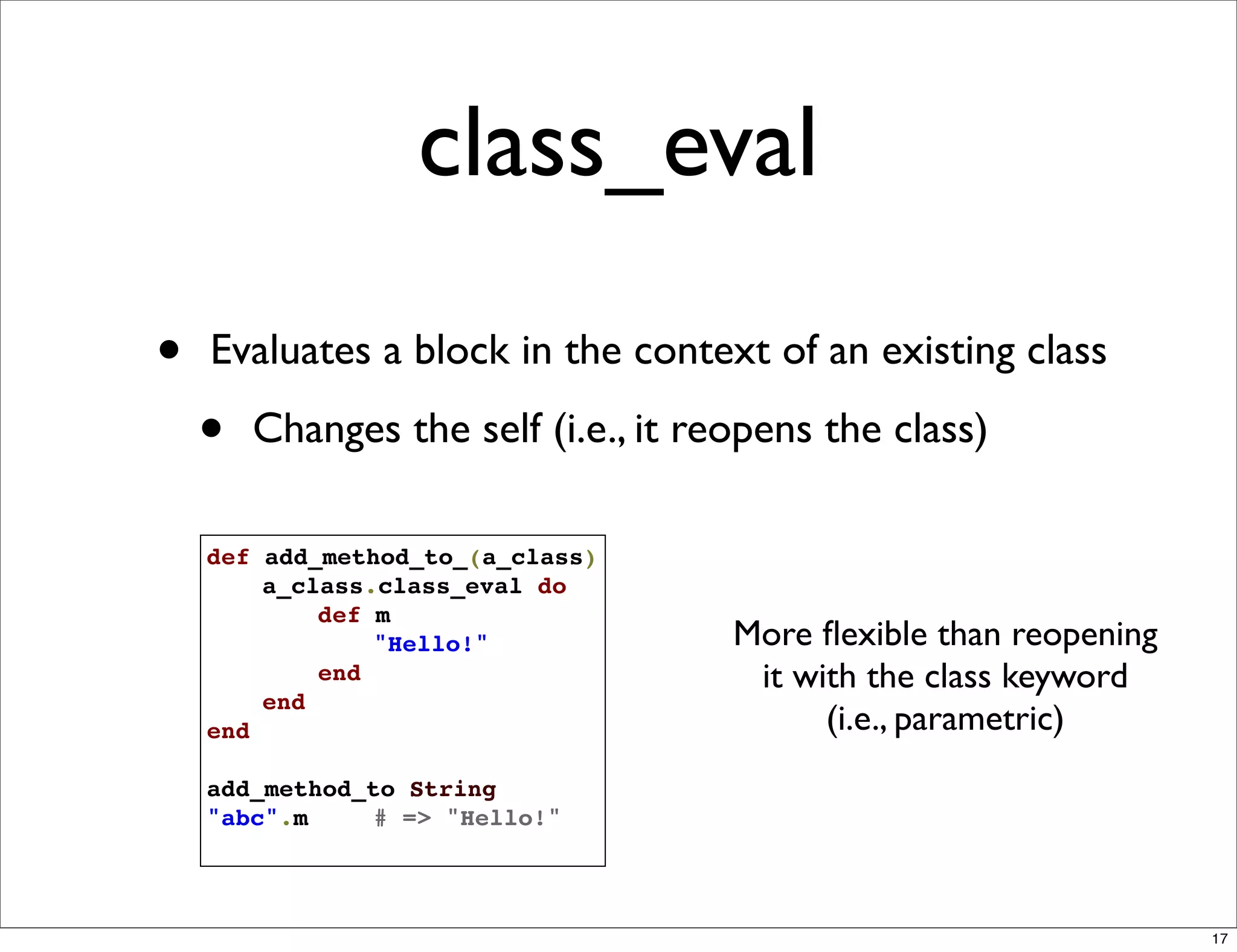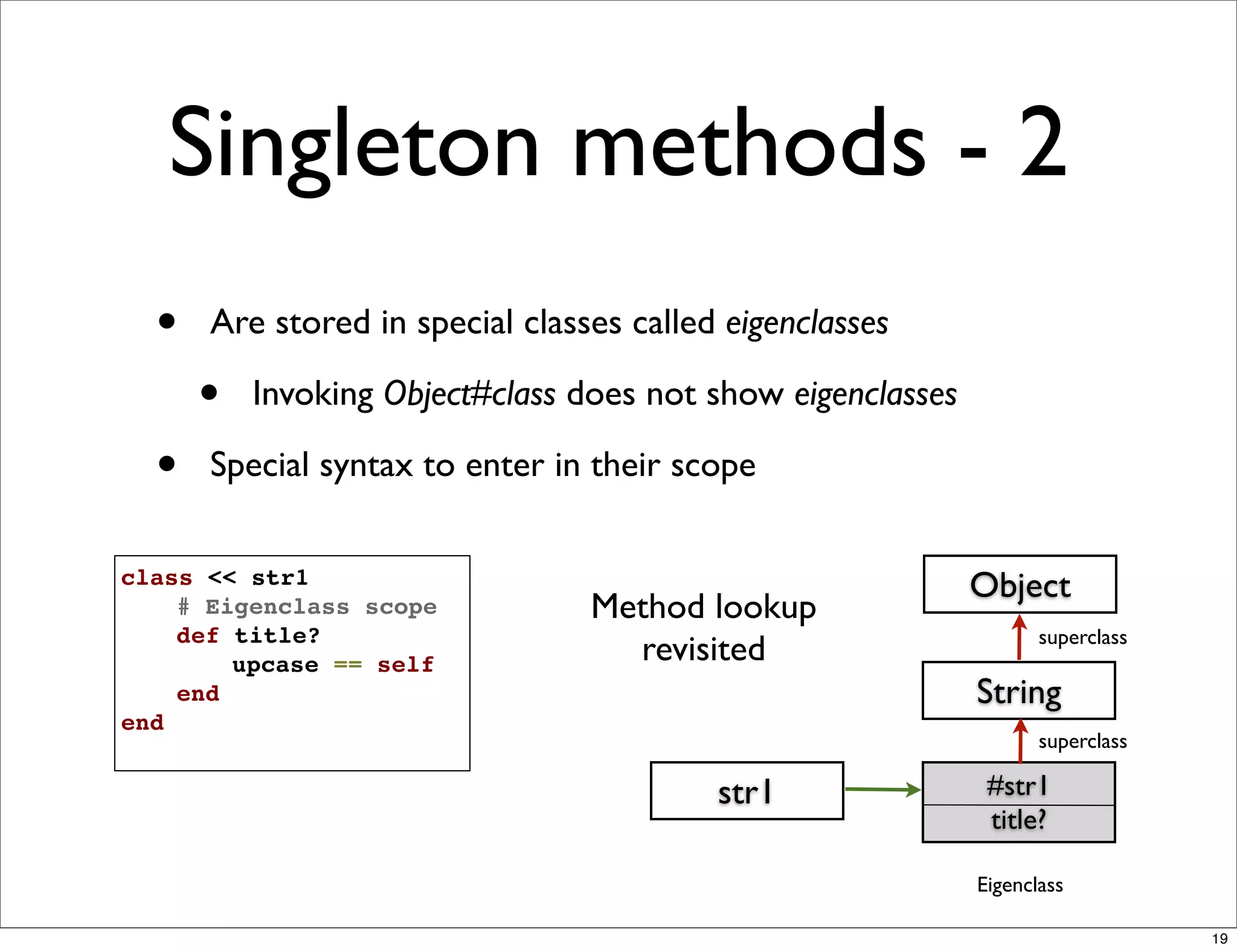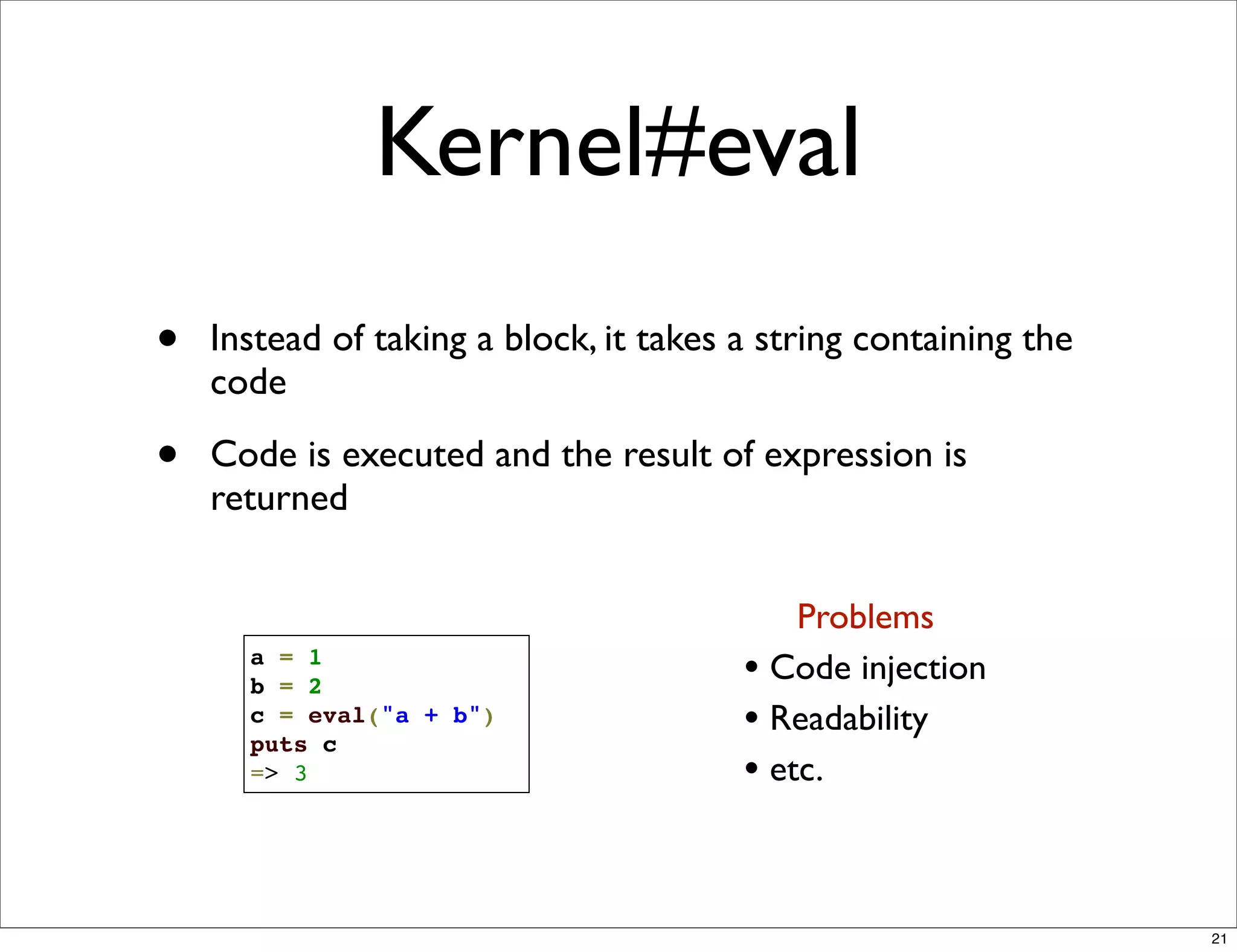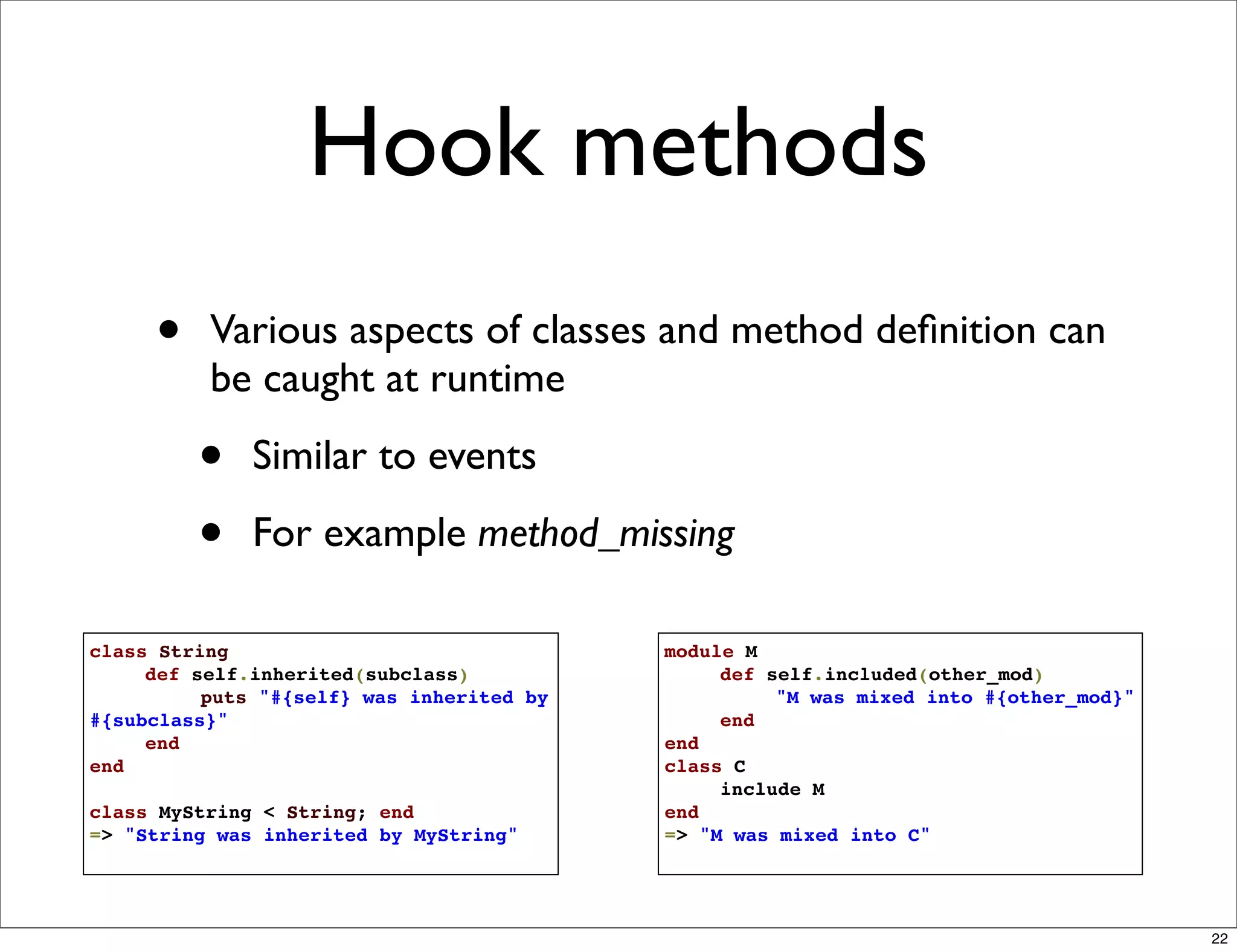1. Metaprogramming in Ruby allows code to manipulate and extend language constructs at runtime. This enables code to generate or modify other code, create domain-specific languages, and perform introspection to retrieve information about objects. 2. Ruby supports introspection through various methods that allow retrieving information about classes and objects like their methods, variables, and inheritance. Classes can also be reopened to add or modify methods. 3. Ruby uses dynamic method lookup and allows sending messages to objects at runtime through methods like send. This dynamic nature facilitates metaprogramming techniques like dynamically defining and calling methods.
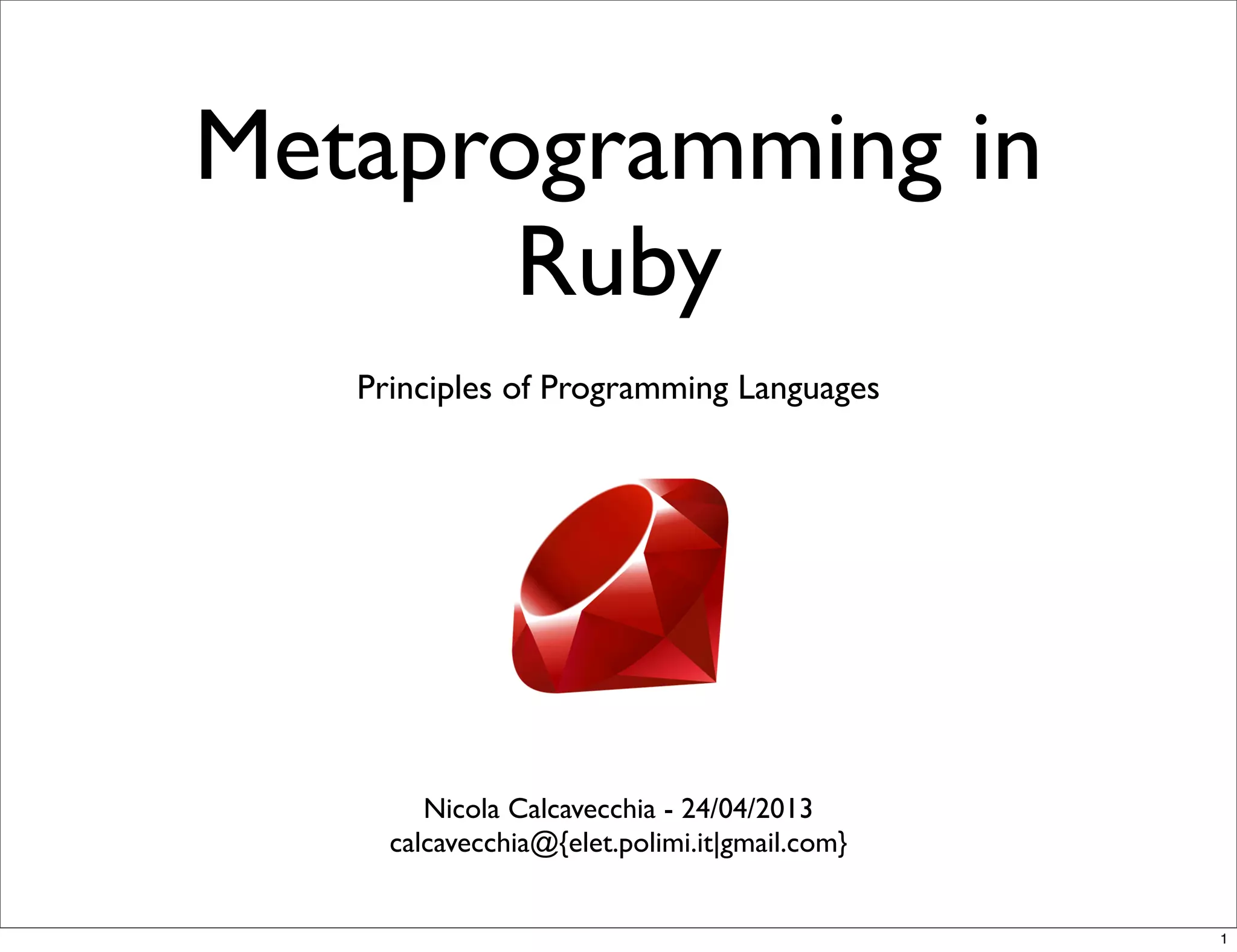
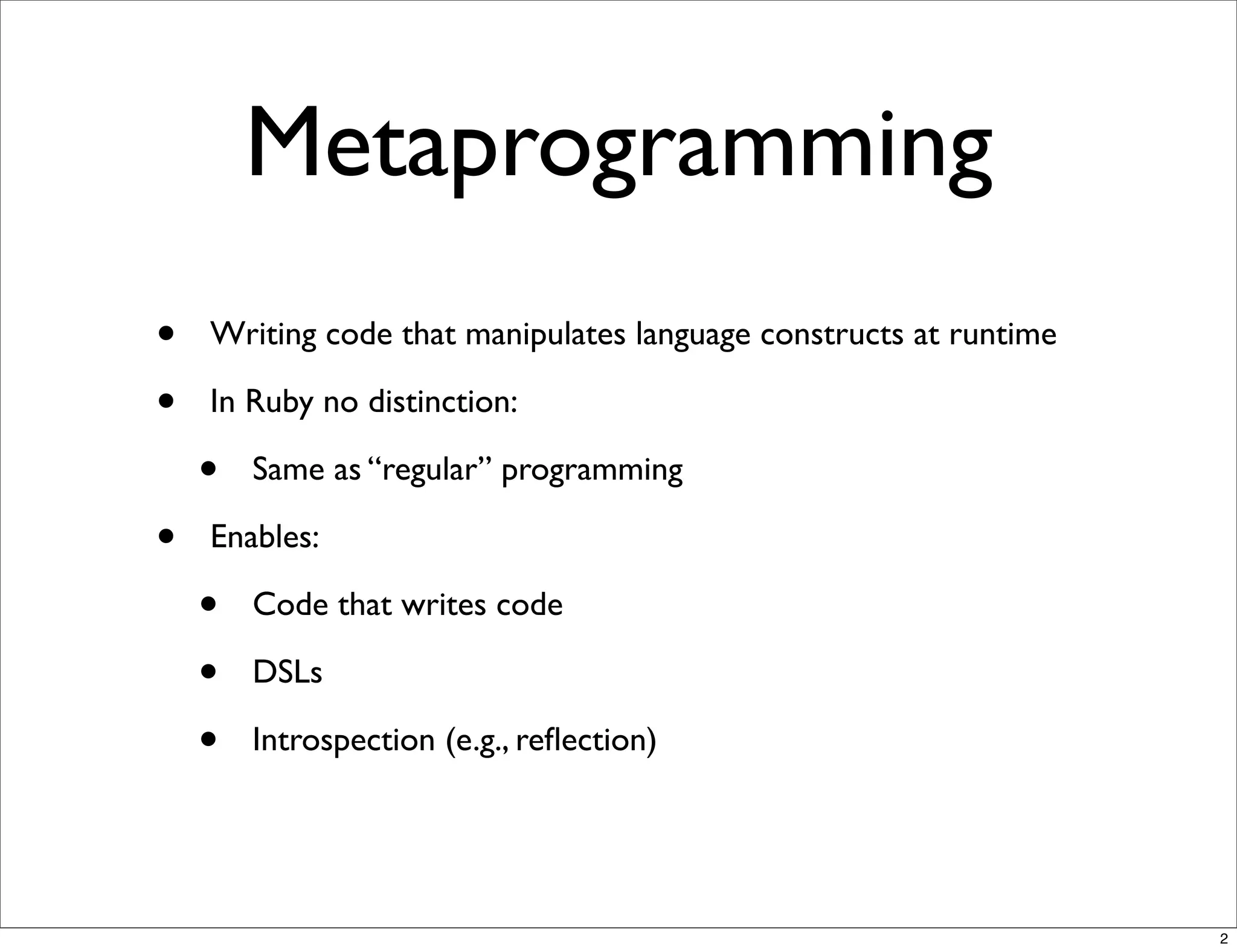
![Introspection • Allows to get information about objects at runtime • Methods • Instance variables • etc. class MyClass ! def initialize() ! ! @var1, @var2 = 0, 2 ! end ! def my_method ! end end m = MyClass.new m.class => MyClass m.methods => # lot of methods ... m.instance_variables => [:@var1, :@var2] m.public_methods => # ... m.private_methods => # ... m.instance_of? MyClass => true m.instance_of? Object => false m.is_a? MyClass => true m.is_a? Object => true 3](https://image.slidesharecdn.com/ruby2-130817115803-phpapp01/75/Metaprogramming-in-Ruby-3-2048.jpg)
![Open Classes • Classes can be “opened” for change • What about the open/closed principle? class MyClass ! def a; "method a"; end end m = MyClass.new m.methods - Object.new.methods => [:a] class MyClass ! def b; "method b"; end end m.methods - Object.new.methods => [:a, :b] class Numeric ! KILOBYTE = 1024 ! def kilobytes ! ! self * KILOBYTE ! end end puts 2.kilobytes => 2048 4](https://image.slidesharecdn.com/ruby2-130817115803-phpapp01/75/Metaprogramming-in-Ruby-4-2048.jpg)
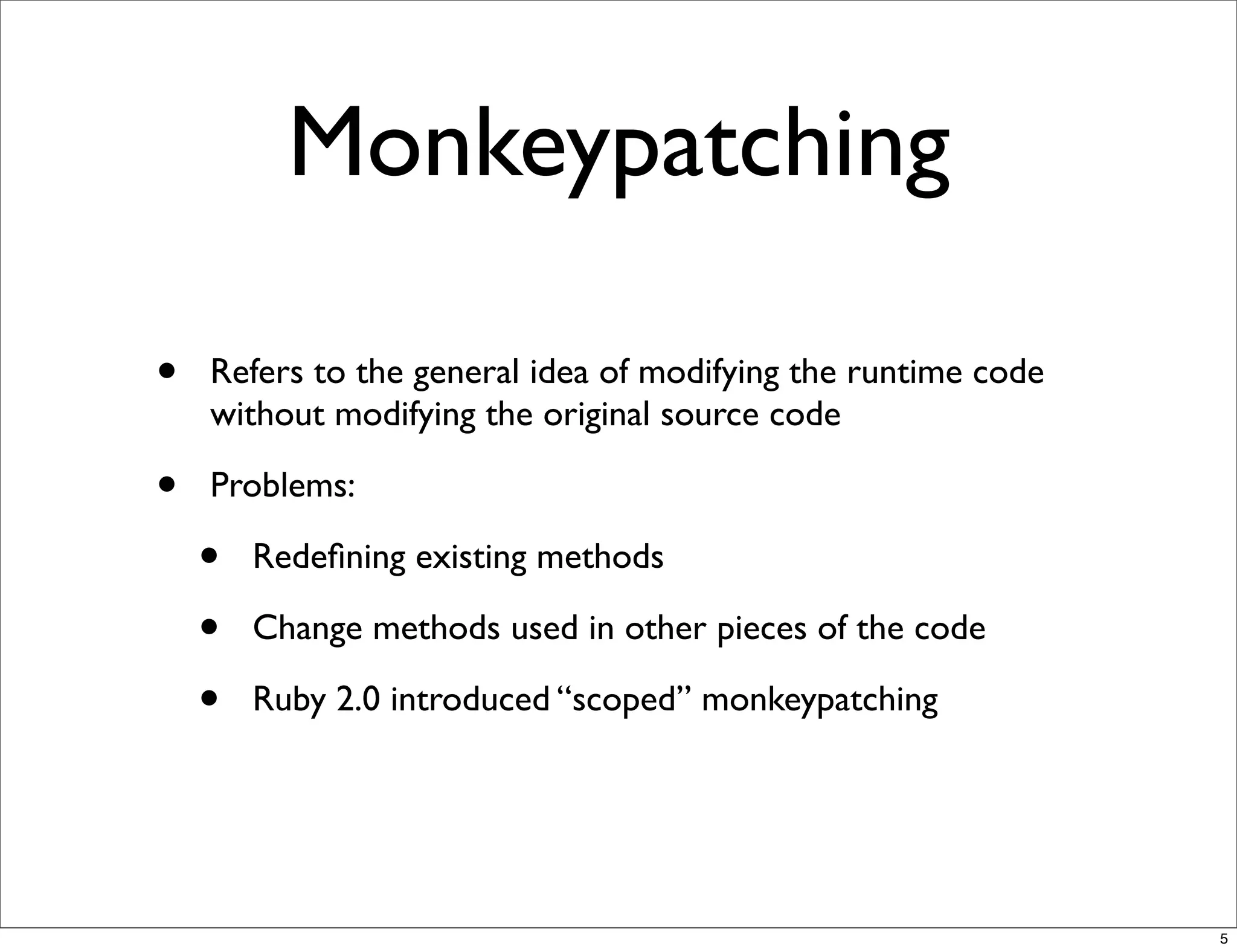
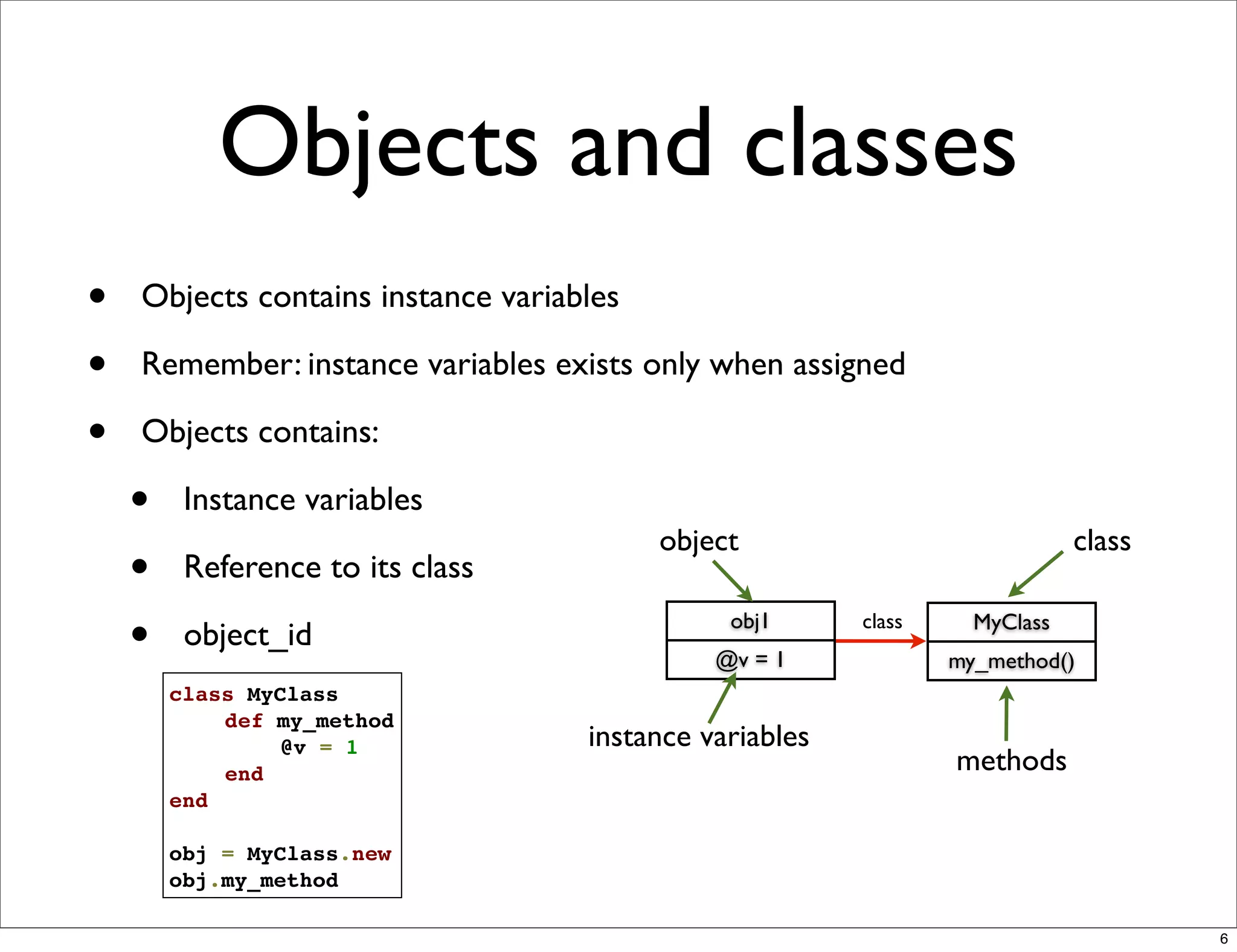
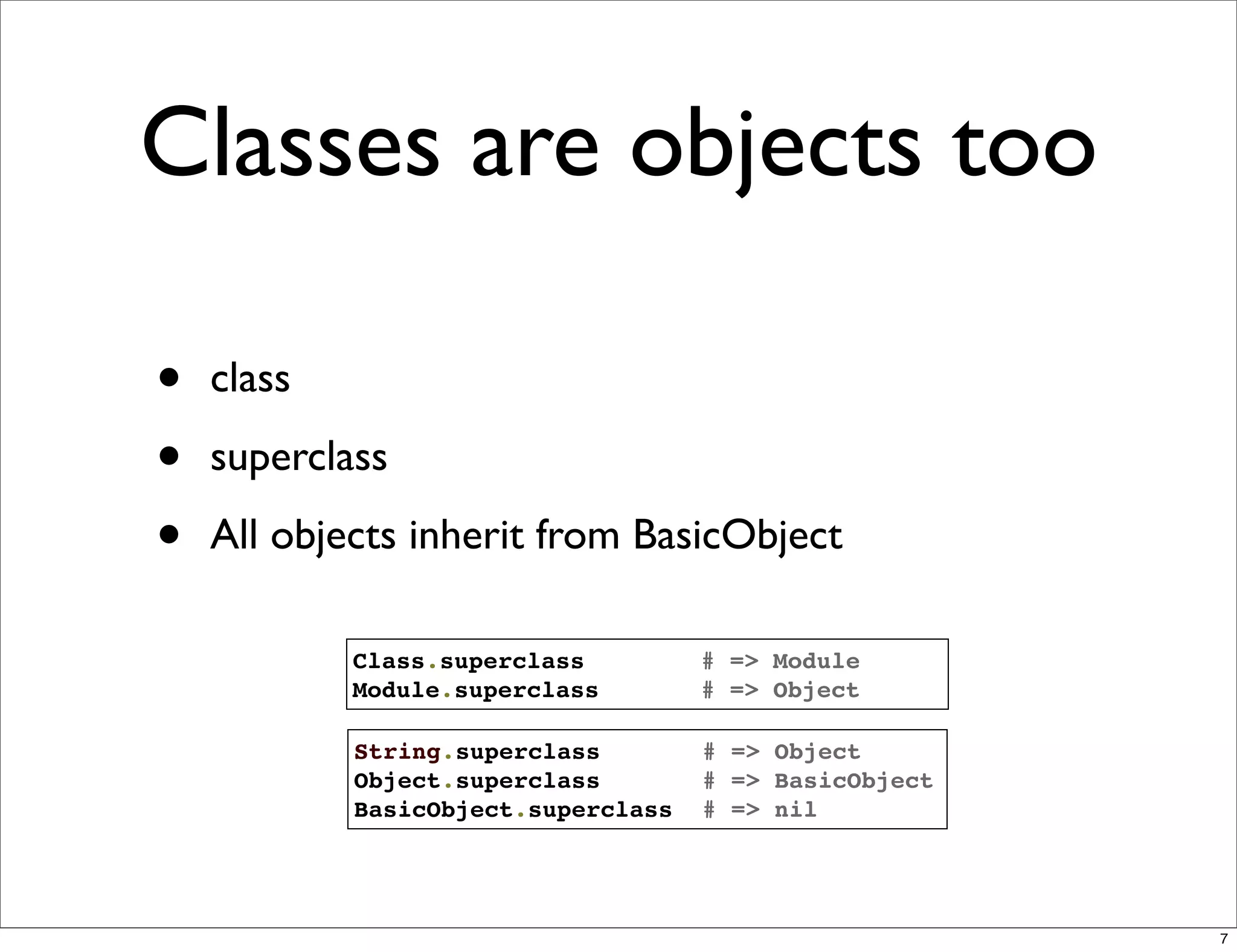
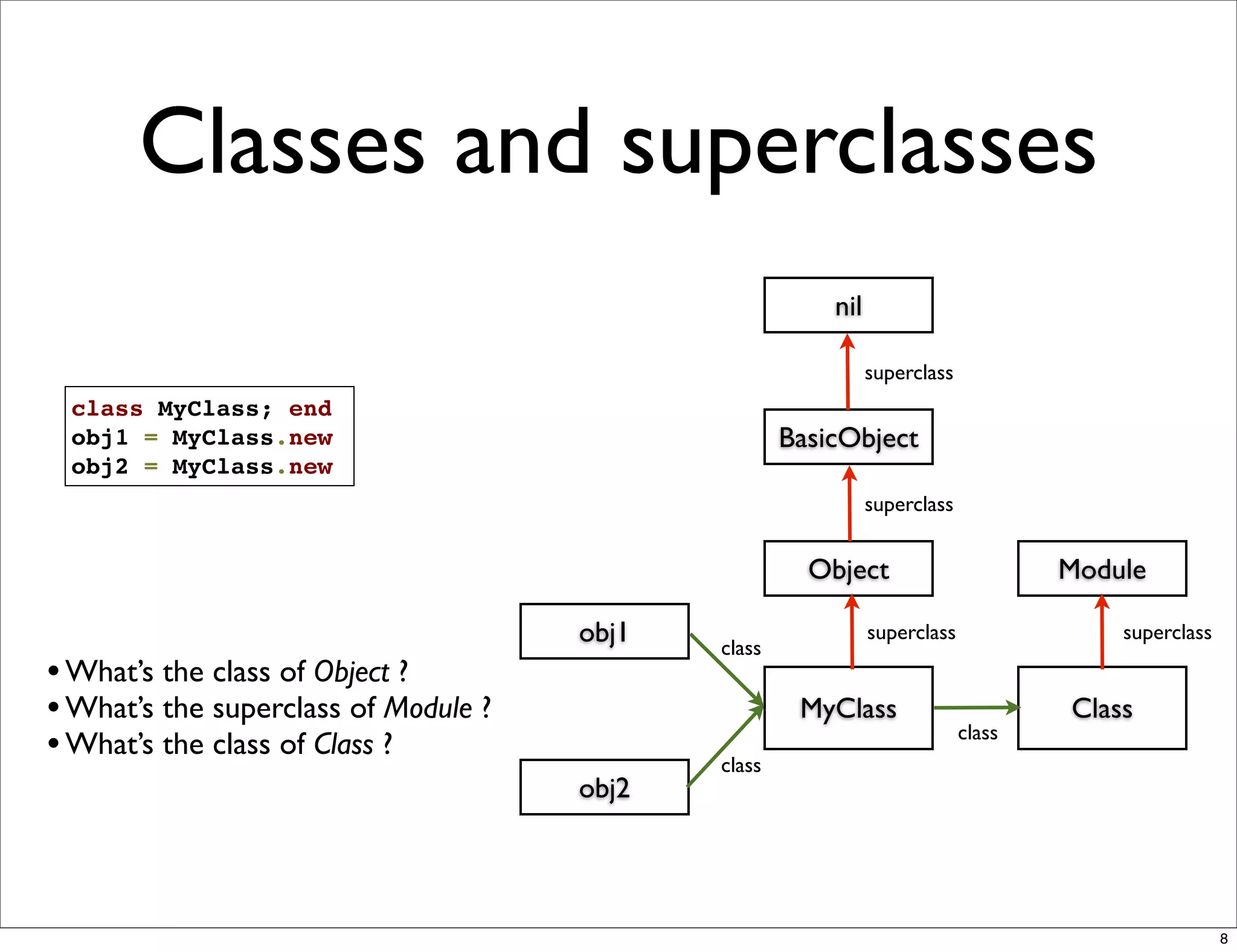
![Invoking methods • Calling a method involves two steps: 1. Method lookup • Identify receiver class • Escalate ancestor chain until the method is found 2. Method execution • The actual code is executed class A; end class B < A; end B.ancestors => [B, A, Object, Kernel, BasicObject] The ancestor chain includes also modules 9](https://image.slidesharecdn.com/ruby2-130817115803-phpapp01/75/Metaprogramming-in-Ruby-9-2048.jpg)
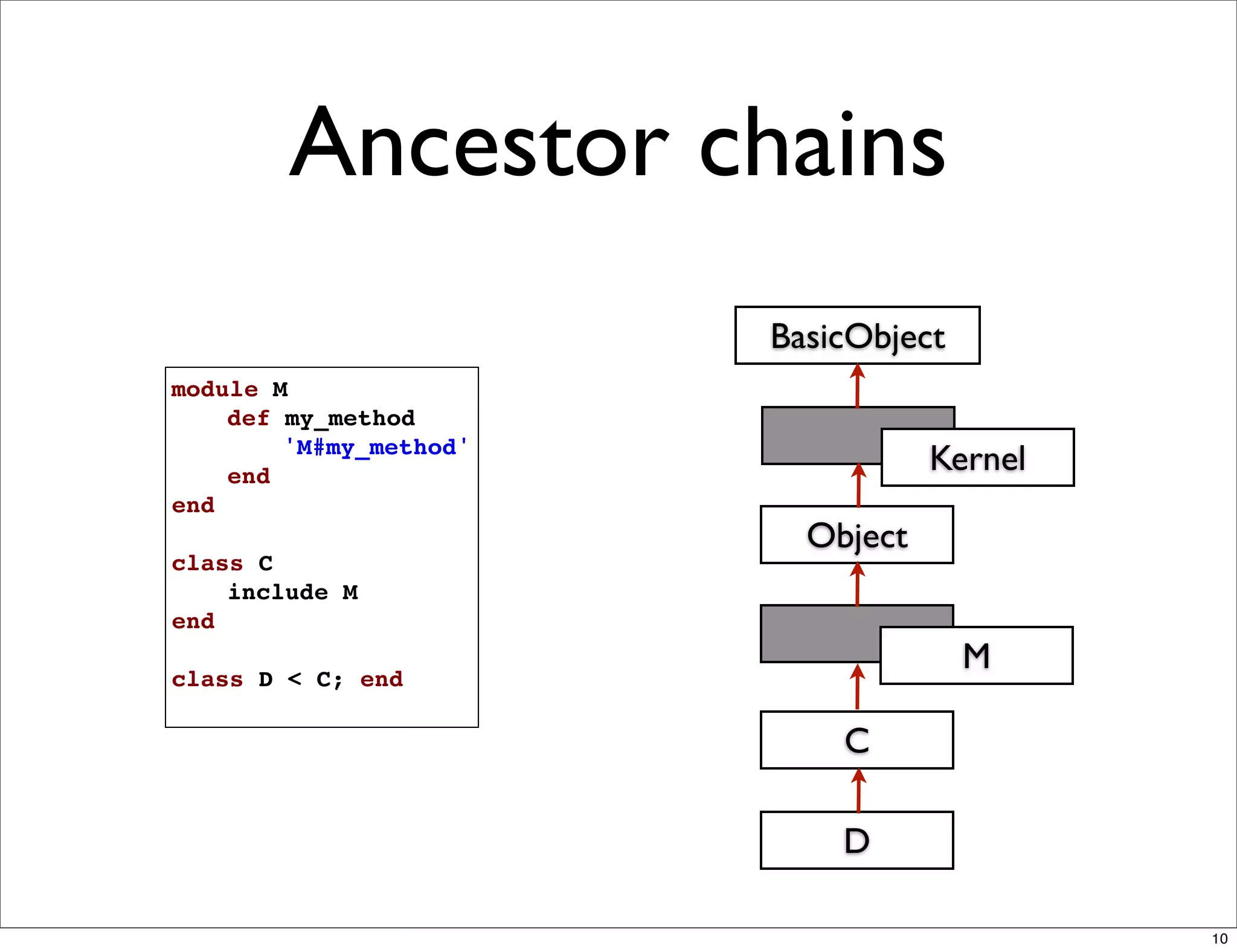
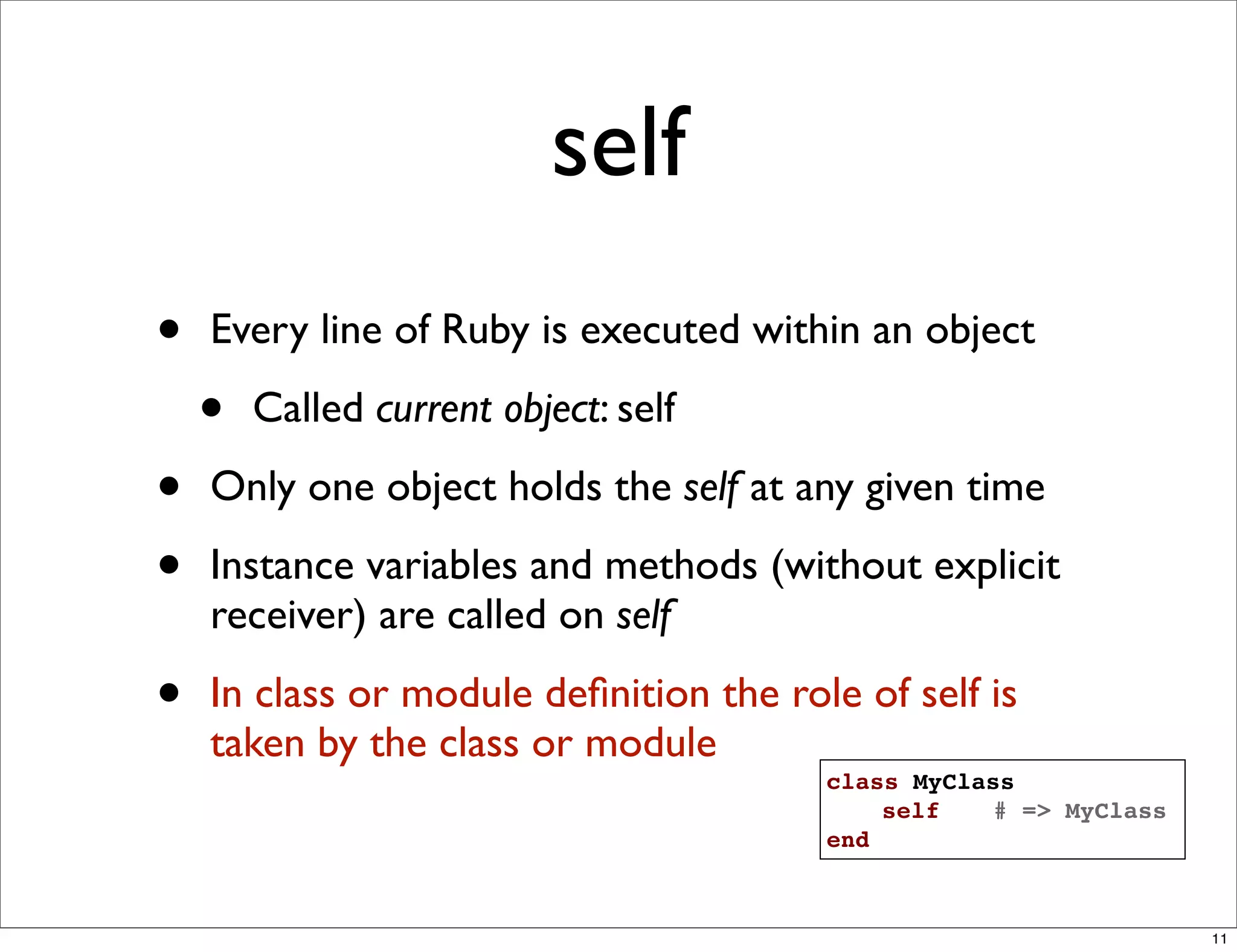
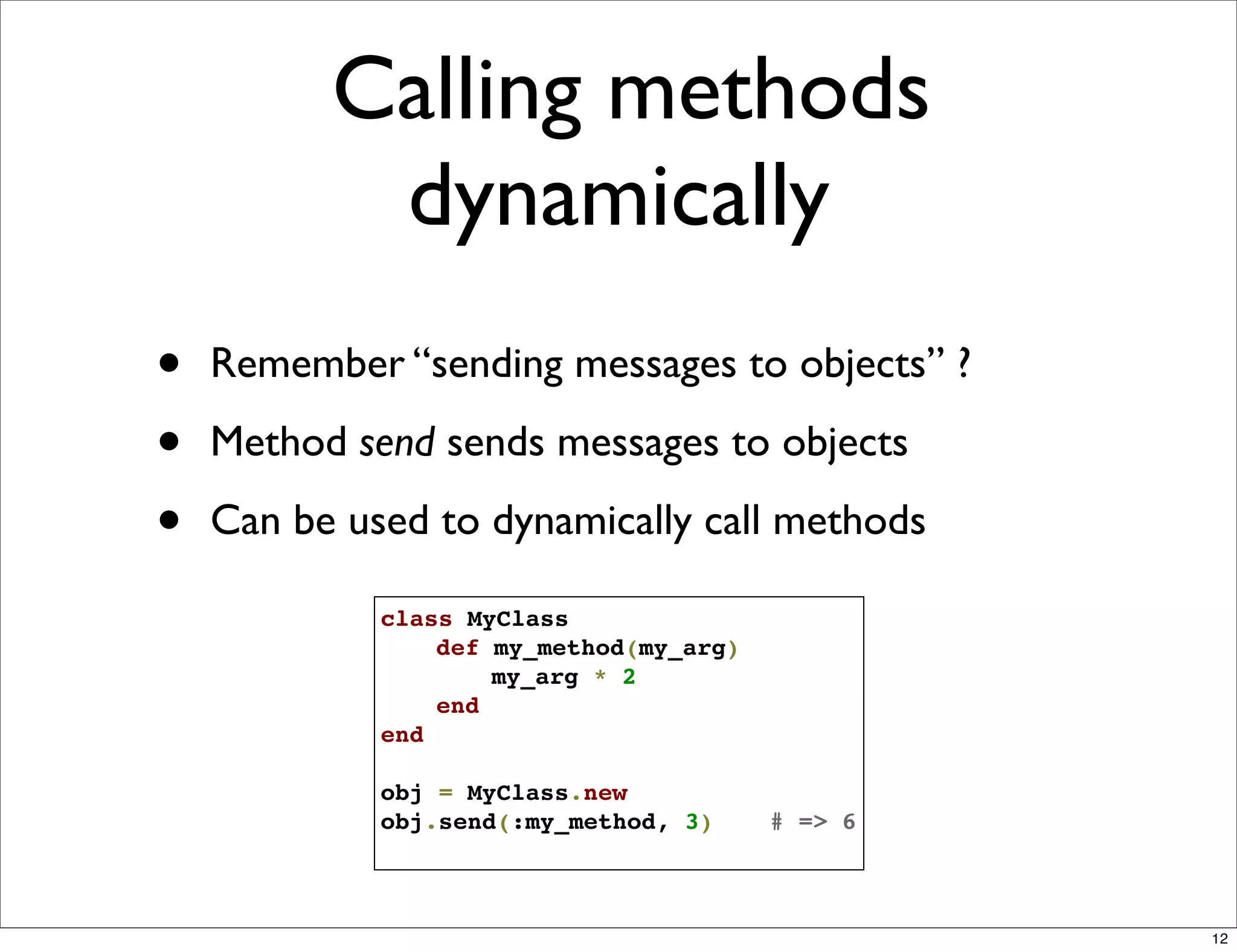
![Defining methods dynamically • Use the Module#define_method method • Provide a block for the method body class MyClass ! ["steve", "jeff", "larry"].each{|d| ! ! ! define_method d.to_sym do ! ! ! ! puts d ! ! ! end ! ! } end obj = MyClass.new obj.steve! # => "steve" obj.jeff! # => "jeff" obj.larry! # => "larry" 13](https://image.slidesharecdn.com/ruby2-130817115803-phpapp01/75/Metaprogramming-in-Ruby-13-2048.jpg)

![An example class Mapper ! def initialize() ! ! @map = {} ! end ! def add(key, value) ! ! @map[key.downcase] = value ! end ! def method_missing(method_name, *args) ! ! key = method_name.to_s.downcase ! ! return @map[key] if @map.key? key ! end end m = Mapper.new m.add("Rome","IT") m.add("London","UK") puts m.rome puts m.london 15](https://image.slidesharecdn.com/ruby2-130817115803-phpapp01/75/Metaprogramming-in-Ruby-15-2048.jpg)
